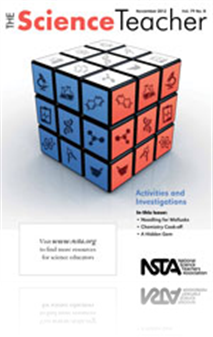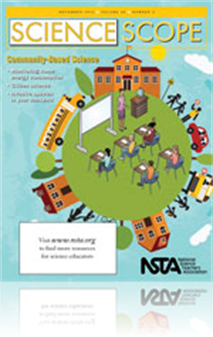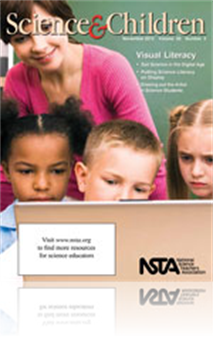All Resources
Journal Article
Career of the Month: Hydrogeologist
This column shares interviews with professionals using science in the workplace. This month’s issue describes the job of a hydrogeologist....
Journal Article
Editor's Roundtable: Creating a Sense of Community
Science Scope’s editor shares thoughts regarding the current issue....
Journal Article
Students use the BIDDI (Brainstorm, Investigate, Debrief, Debate, Indentify) process to understand settling rates, permeability, and porosity....
Journal Article
Health Wise: Better Grades Through Sleeping?
This column provides up-to-date information on current health topics—along with classroom activities that help students make healthy choices. This month’s issue discusses the importance of sleep. ...
Journal Article
Interactive word walls effectively incorporate the four components of a comprehensive vocabulary program along with a visual foundation for students to anchor learning. This article describes an effort to build science content understanding and suppo...
Journal Article
Science 101: When Is the Bernoulli Effect Not the Bernoulli Effect?
This column provides background science information for elementary teachers. In this month’s issue the author discusses the Bernoulli Effect....





